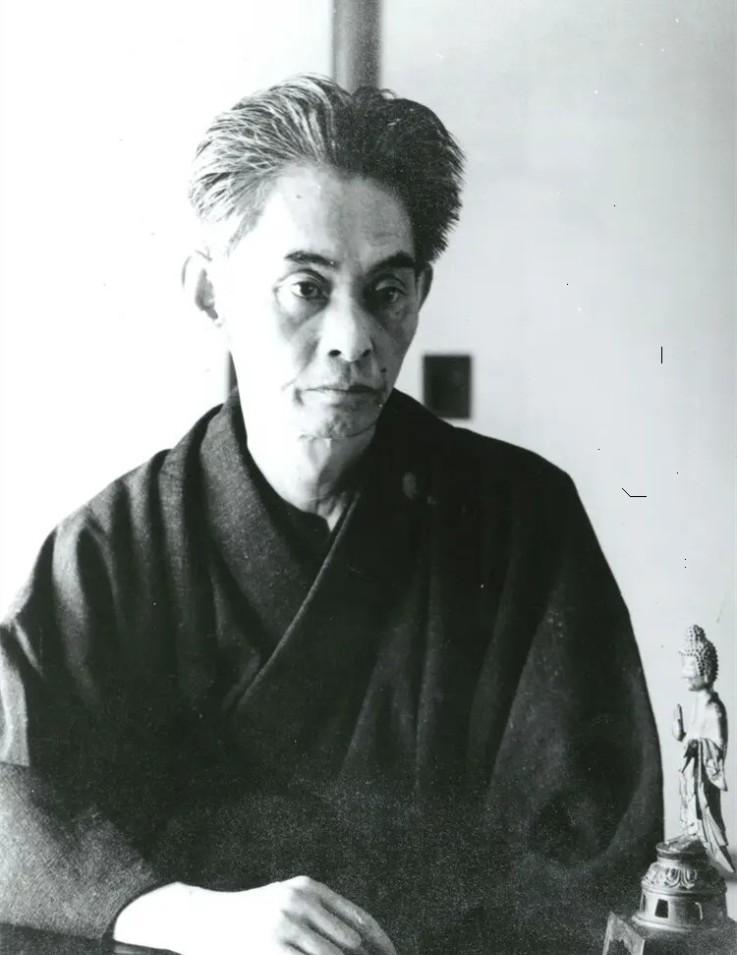He integrated the deepest things of Japanese culture with the extensive Western culture, expressed them in the form of words, and formed the beauty of Yasunari Kawabata's literature. Today, it is the 50th anniversary of Yasunari Kawabata's death, we will remember this great Japanese writer together, enjoy his ten most charming aphorisms together, experience his aesthetic pursuit and spiritual pursuit, and believe that you will have some understanding after reading it.

Regarding Yasunari Kawabata, there are endless topics, and judging from his life experience, it is legendary. He aspired to be a novelist from an early age, and after continuous reading, writing, and research, he finally embarked on the path of literature. When the novel "Snow Country" was completed, Yasunari Kawabata formed his own creative personality. The novel "Snow Country" has slender characters, rich emotions, and profound psychological activities, and under the use of sensory depictions and streams of consciousness, it makes the beauty of Japanese tradition more tense and infectious, and is one of his most important works and one of the most influential works.
In Yasunari Kawabata's novels, women are so beautiful, and more importantly, they are more beautiful inside. Their fate is almost all sad, and the ending of the story almost ends in tragedy, but under the tenacious attitude of life, it reflects the heroine's mourning, and reads deeply and is moved. In addition, the beauty of the beautiful people, the capture of fleeting beauty, this ability is Kawabata Yasunari's "best play". He is good at fixing the passing time and space, leading the reader to appreciate the beauty of that moment, the sense of picture is extremely strong, and the careful tasting is endlessly evocative.
In addition, Yasunari Kawabata has a unique insight into the use of color, he believes that color is complementary to emotion, and different colors represent different temperaments and psychology. For example, the enthusiasm of red highlights the brilliance and youthful atmosphere of the heroine; the cold purity of the white indicates the purity of the heroine's soul, and also reveals the faint coldness of the characters, while reflecting the unpredictable connotations of the characters. In terms of writing, Yasunari Kawabata follows the structure of traditional Japanese literature, using interpolation, supplementation and other techniques to reverse time and space, penetrate each other, reflecting the thick stream of consciousness technique, giving readers both flexible and clear feelings.
It is worth mentioning that Yasunari Kawabata is somewhat idealistic, and the female characters he portrays are pure, beautiful, uncomplaining and regretless, and are the "goddess" image in men's hearts. But he is also "cruel", the perfect woman in people's minds does not have a good fate, the beauty of human nature depicted is dominated by a sad fate, poignant and mournful makes the reader feel pity, and the author also expresses his own humanistic care from his own perspective. Whether it is creative skills or aesthetic pursuits, Yasunari Kawabata has a deep influence on mainland writers, among which Yu Hua, Jia Pingwa, Mo Yan and so on are highly respected.
Yu Hua can be said to have reached the level of fascination with Yasunari Kawabata, and the literary works of the two are extremely similar in technique and style, especially in the mournful style, and the works of the two are similar. In terms of the theme of the novel, they are concerned about the low-level people of society, especially the lowly beauty of the low-level characters, which is particularly outstanding. Of course, the two writers have their own unique places, Yasunari Kawabata combines Japanese cultural characteristics with advanced Ideas of the West, while Yu Hua presents the profound culture of the mainland to the reader in a thoughtful language, and their common purpose is to spread Eastern culture to the world.
Moreover, Yasunari Kawabata's works are most deeply felt by "nothingness", because they adhere to the Buddhist Zen ideas in traditional Japanese culture. He is not a philosopher, it is appropriate to say that he is a novelist with a poetic temperament, he explores the Zen path in literature, and feels the greatness of life and the true meaning of life. In all his works, all the lives he describes are permeated with "nothingness", so that the works present profoundness and complexity, the perception of life and life guides the reader into his own spiritual world, the first sense will give people a sense of nothingness, and after deep understanding, he will definitely raise his hand and praise the author's thoughts.
On April 16, 1972, the way he chose to end his life was both doubtful and sad. He is a "titan" figure in the Field of Japanese Literature, and in 1968 he won the Nobel Prize in Literature for three works, including Snow Country, thus becoming the third person in Asia to win the Nobel Prize in Literature. Today is his 50th anniversary, let's enjoy his ten most famous aphorisms, remember this great Japanese writer, walk into his spiritual world together, feel the aesthetic pursuit of his works and the author's world view, I believe you will have some feelings.